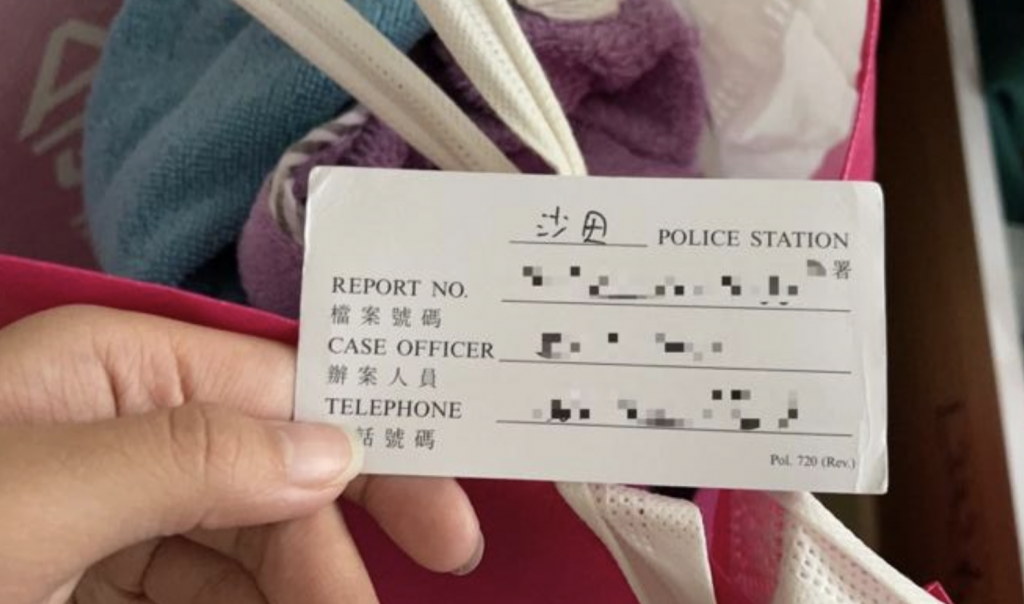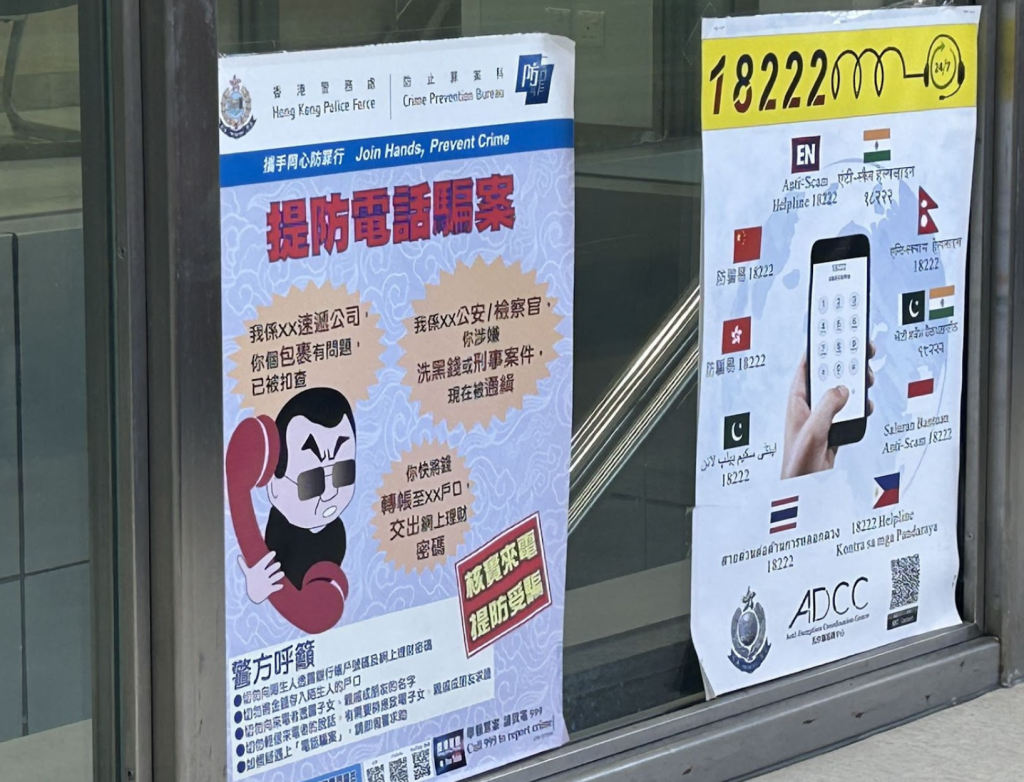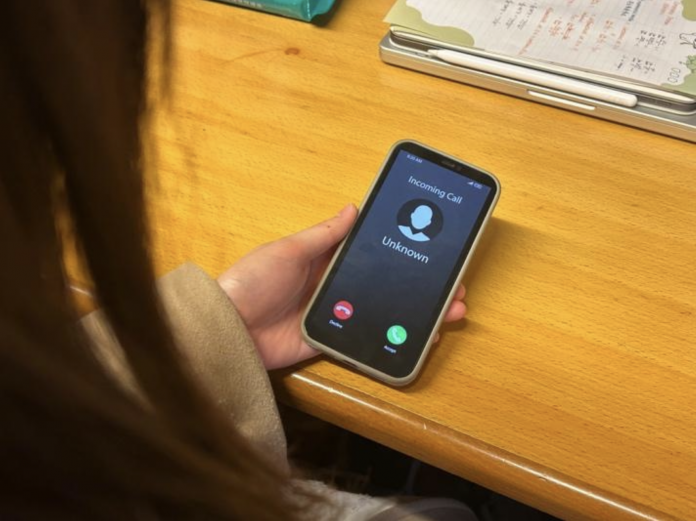Mainland students experience phone scams in Hong Kong.
By Lily Wang
Elisa Yang was swindled out of HKD25,000(USD3,212.5) in a phone scam in August 2022 and is still waiting for news from the Hong Kong and Mainland police officers after reporting her case. The traumatized university student now only uses WeChat Pay, Alipay, and cash in payment.
The phone fraudster impersonating a Department of Health employee claimed that Yang’s Leave Home Save App records showed she stayed somewhere in Tsim Sha Tsui with many confirmed COVID-19 cases reported on August 26th. Yang was told that she would be sent to a quarantine place, and she had to pay HKD25,000 as a deposit for the use of quarantine facilities with her credit card. Though she had no detail about where she would be sent, she gave the scammer her mainland credit card number.

“I received the phone call on August 27 afternoon. I was so nervous about issues related to COVID-19. I used to regularly receive messages checking my situation from Health Department when I was in Mainland China,” says Yang.
The year two student only arrived in Hong Kong for a few days when the case occurred. Because of the pandemic, she did most of the classes through Zoom after being admitted to the Chinese University of Hong Kong.

“I shared my fear of going to a government quarantine facility with my friends one day after receiving the phone call. Then I realized that this could be a phone fraud,” Yang adds.
“Now all my cards are frozen as the mainland bank freezes my account. I rely only on WeChat Pay, Alipay, and a limited amount of cash for my daily expenses,” the Chinese University student says.
“Since then, I doubt every decision I make. I fear that I might have become a laughingstock among my peers. Would they think I am a stupid girl, as I could easily be scammed? I wonder if they look down on me and do not want to be friends?” Yang says.
Another university student Mike Yang also received a similar phone scam but managed to spot and protect himself.
Yang received the call on October 11. The fraudster impersonated an officer from the High Court of Hong Kong, claiming that the Chinese University student had to settle a credit card bill of HKD 38,800 (USD4,985.8) within a week or else he would be sent to jail.
“He told me that I consumed that bill on August 7 in Harbor City,” he recalled.
“I was generally a cautious person. Though I was nervous, I kept asking the scammer questions such as which shop exactly I spent the money in and what the credit card number was,” the 18-year-old student recalled.
He argued with the first scammer and the call was transferred to another fraudster posing as a senior officer from the High Court.
“The senior one made up a credit card number for me and stressed the seriousness of the crime. I almost believed in their trick. I gave the scammer my Hong Kong Identity Card number and the last four digits of my credit card number and asked them to check the bill again,” the student says.
After the first call, the fraudsters called him several times urging him to settle the payment. He then realized that this might be a phone scam.
“I still feel worried now. I don’t know whether the information I gave them will cause me trouble later,” Yang says, adding that he has not suffered any losses so far.
Regarding Elisa Yang’s case, police said in an email dated December 22 that the case is still under investigation.
“Telephone deception is a cross-jurisdictional syndicated criminal activity. Swindlers made scam calls outside Hong Kong, sometimes with VoIP technology or prepaid SIM card. Part of the deceived money was deposited or transferred to bank accounts outside Hong Kong and dissipated instantly, making it difficult for fund tracing and police investigation,” the reply to states.
The number of deception cases recorded increased from 648 to 1687 from 2019 to 2022. Police handled 906 “pretending officials” cases in the first nine months of 2022 with a total loss of HKD 721 million (USD92million).
The reply also states that “the excuses made by fraudsters are unusually closely relating to current affairs. For instance, during the pandemic, the fraudster used excuses related to illegal delivery of vaccine or violation of quarantine order at the outset and duped victims into divulging their personal or financial information.”
Police set up Anti-Deception Coordination Center in July 2017 to help monitor deception trends, implement combating strategies, and collaborate with the banking industry and oversea law enforcement agencies to intercept the proceeds of crime.

The public should be aware of phone calls asking for money, personal information, and downloading unknown software, according to police.
On avoiding phone scams, here are a few tips from police:
1 DO NOT transfer money to strangers’ bank accounts.
2 DO NOT install any unknown software or suspicious application on mobile phones or computers.
3 DO NOT input personal information into any unknown website or application.
4 DO NOT disclose your personal information to strangers.
5 “Three Dos” against telephone deception – “Hang Up,” “Verify,” and “Get Help”.
6 Remind your relatives and friends to stay alert against deception, and if in doubt, please call the Anti-Scam Helpline 18222.
Sub-edited by Chaelim Kim







































